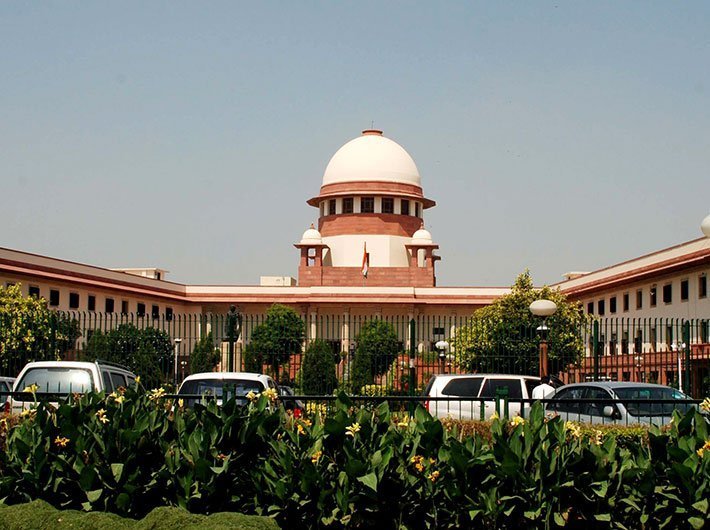In a judgment with far-reaching implications, the Supreme Court has held that the civil consequences of an account being declared as fraud under the Reserve Bank of India (Frauds Classification and Reporting by Commercial Banks and Select FIs) Directions, 2016 or its Master Directions on Fraud amount to civil death to borrowers, including blacklisting of accounts. Such borrowers should be first given a chance to be heard.
A bench comprising of Chief Justice of India DY Chandrachud and Justice Hima Kohli on Monday held that the principles of natural justice, particularly the rule of ‘audi alteram partem’ (hear the other side), has to be necessarily read into the Reserve Bank of India’s Master Directions on Frauds.
The bench noted that the classification of an account as fraud has significant civil consequences as it jeopardizes the future of the business of the borrower. The debarment of borrowers under Clause 8.12.1 of the Master Directions from availing finance from banks and financial institutions is akin to blacklisting. The action of classifying an account as fraud not only affects the business and goodwill of the borrower, but also the right to reputation.
The judgment has come in appeals filed by the RBI and other lender banks against the Telangana High Court’s decision of December 2020 that the principles of natural justice must be read into the provisions of the Master Directions on Frauds.
“Classification of the borrower’s account as fraud under the Master Directions on Frauds virtually leads to a credit freeze for the borrower, who is debarred from raising finance from financial markets and capital markets,” the court pointed out.
The SC held that the lender bank should provide an opportunity to a borrower by furnishing a copy of the audit reports and allow the borrower a reasonable opportunity to submit a representation before classifying the account as fraud.
It emphasised that a reasoned order must be passed on the objections raised by the borrowers. The reasons may be brief but they must comport with fairness by indicating due application of mind.
The bench clarified the settled proposition of law – the principles of natural justice are not applicable at the stage of reporting of a criminal offence, and has held that no opportunity of being heard is required before an FIR is lodged and registered.
The bench held that the impugned decision of the lender banks to classify the borrower accounts as fraud is violative of the principles of natural justice.
It, however, granted liberty to the banks to take fresh steps in accordance with the decision.
With hundreds of such cases in different high courts across the country the judgment will have bearing on borrowers who have taken loans from banks and declared frauds.
“This is the right process and way of thinking that before declaring a fraud, a person must be given an opportunity to explain on what basis he should not be declared a fraud and give justification against allegations made against him,” said Advocate Prashant Jain, Founder and Partner, Sarvottam Law offices.
He said that banks are doing business. After big scams lead by Vijay Mallya, Nirav Modi and others, banks were given powers to easily declare default accounts as frauds. “Banks have been deciding that loans taken by borrowers have been siphoned off without giving an opportunity to explain how the money was used – commercial, non-commercial, good or bad decision of the business of borrower.
“Banks were barring the borrower against availing further loans with a criminal case and investigation against him. Now banks will have their own internal committees to hear these cases before any order is passed by their officials. This will take substantial amount of time and energy inputs by the banks before declaring frauds,” explained Jain.
Hailing the judgment, Bharat Sood, advocate, Supreme Court, said that the apex court has given opportunity to banks to proceed afresh and given an opportunity to alleged defaulter to clarify how he is not a willful defaulter or fraud account. (Willful default is a civil norm where the borrower has money but intentionally not paying back to the bank. In fraud, the borrower has siphoned off the money which is criminal action with serious consequences).
He said that while the banks were following the master circular, it [master circular] was silent on opportunity to the account concerned. The SC has now said that before declaring a company or account as fraud, the account be given an opportunity of hearing and give reasons for declaring fraud.
“Sometimes the forensic audit of the bank does not take view of the company, or if given, is not considered at all. Considering this, if a person or company is declared as fraud he/it is deprived of opportunity to take any banking services which has grave consequences for a person running a business and their account suddenly being classified as fraud or willful default is unfair to the borrower. Under the master circular, consequences for willful defaults and fraud accounts are same,” said Sood.
“Every person, before being made to face consequences that prejudicially affect his right to carry on business, needs to be given that liberty to clarify doubts that question his credibility,” he said.

